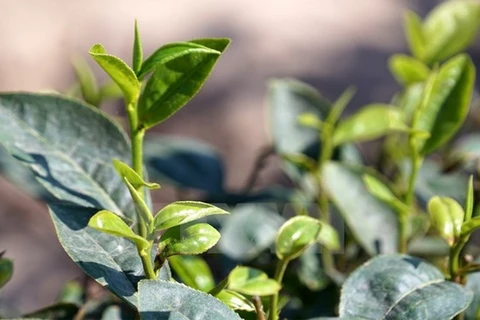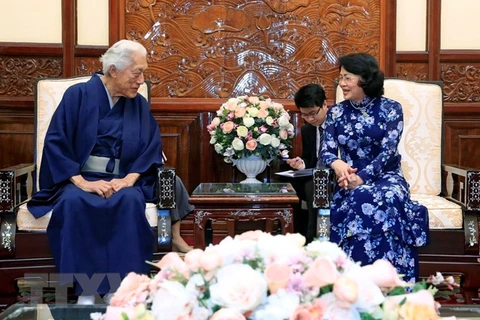Hanoi (VNA) – This year, Vietnam has cultivated about 125,000 hectares of tea, including 110,000 hectares for commercial purpose which produced 8.5 tonnes of tea per hectare, according to the Vietnam Tea Association (VITAS).
Thai Nguyen, Ha Giang, Phu Tho, Tuyen Quang, Lam Dong and Yen Bai are provinces with the country’s largest areas of tea.
Vietnam expects to export 145,000 tonnes of tea for 245 million USD in 2018 while the domestic market consumes about 45,000 tonnes of tea to generate 5.5 trillion VND (235.3 million USD) for the industry.
Last year, Vietnam shipped abroad approximately 140,000 tonnes of tea to bring home 228 million USD, up 6.8 percent and 4.9 percent, respectively from 2016, according to the General Department of Customs.
Vietnam is now the world’s seventh biggest tea producer and fifth largest exporter of the product. The country’s output of the green tea ranked second worldwide, only after China.
Pakistan has remained the largest importer of Vietnamese tea. The export value earned from this market accounted for 32.1 percent of Vietnam’s tea export turnover, or 29.9 million USD, in the first half of this year. It was followed by China’s Taiwan, Russia, China, Indonesia and the United States.
In recent years, Vietnam has recorded an expansion in production of green tea and Oolong tea and seen a decline in black tea production as local producers aimed to boost export revenue.
The country targets to raise the total tea cultivation area to 140,000 hectares in the time ahead, which is seen as a huge opportunity for northern mountainous provinces. –VNA
VNA
























